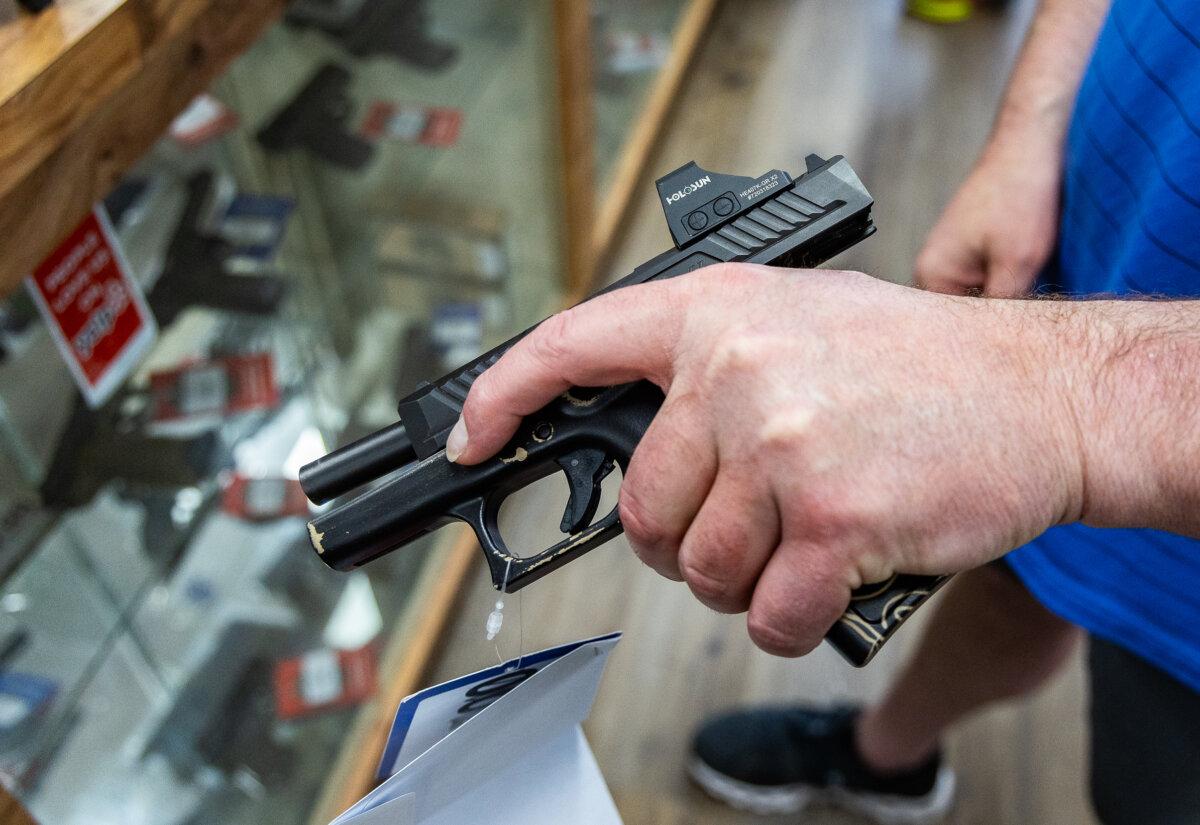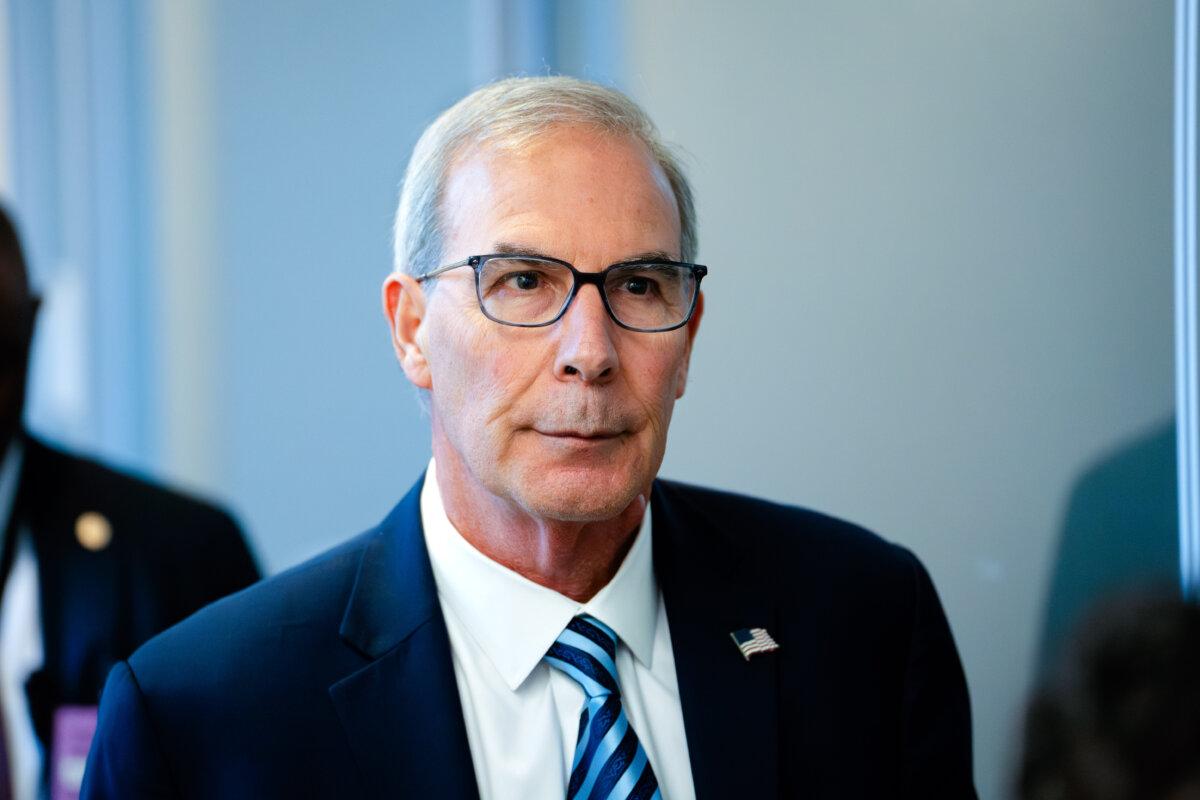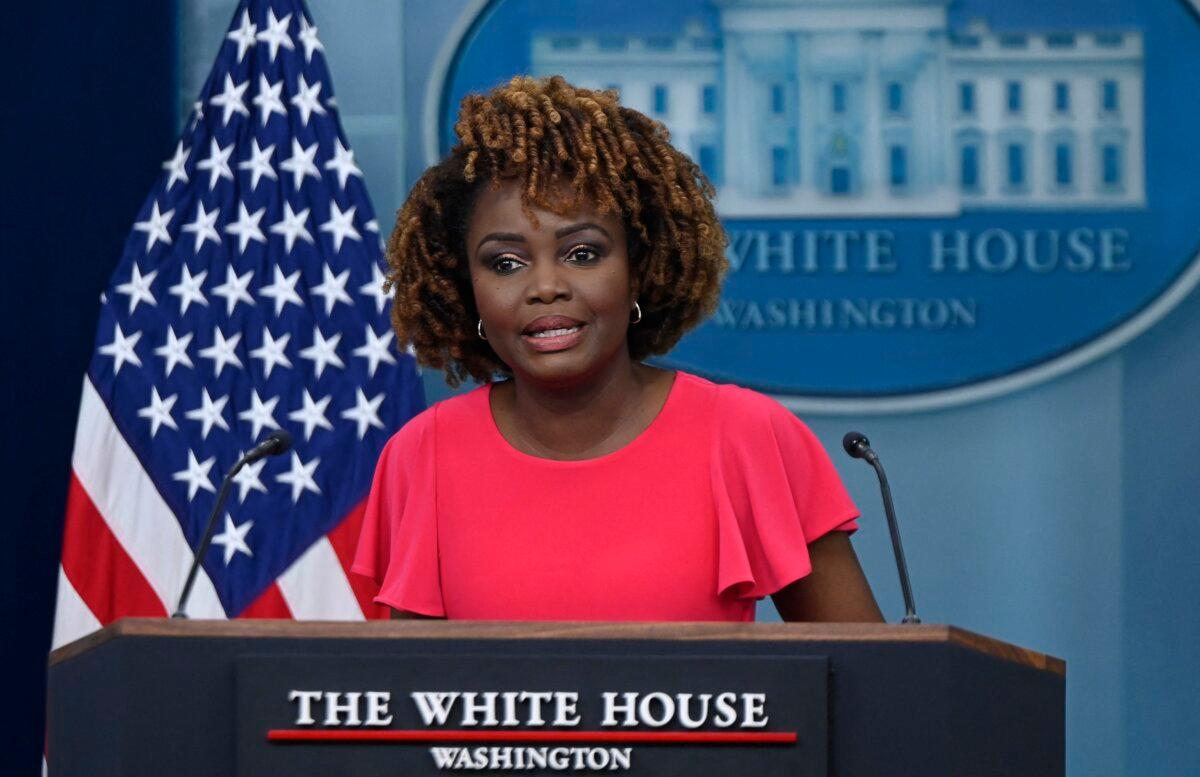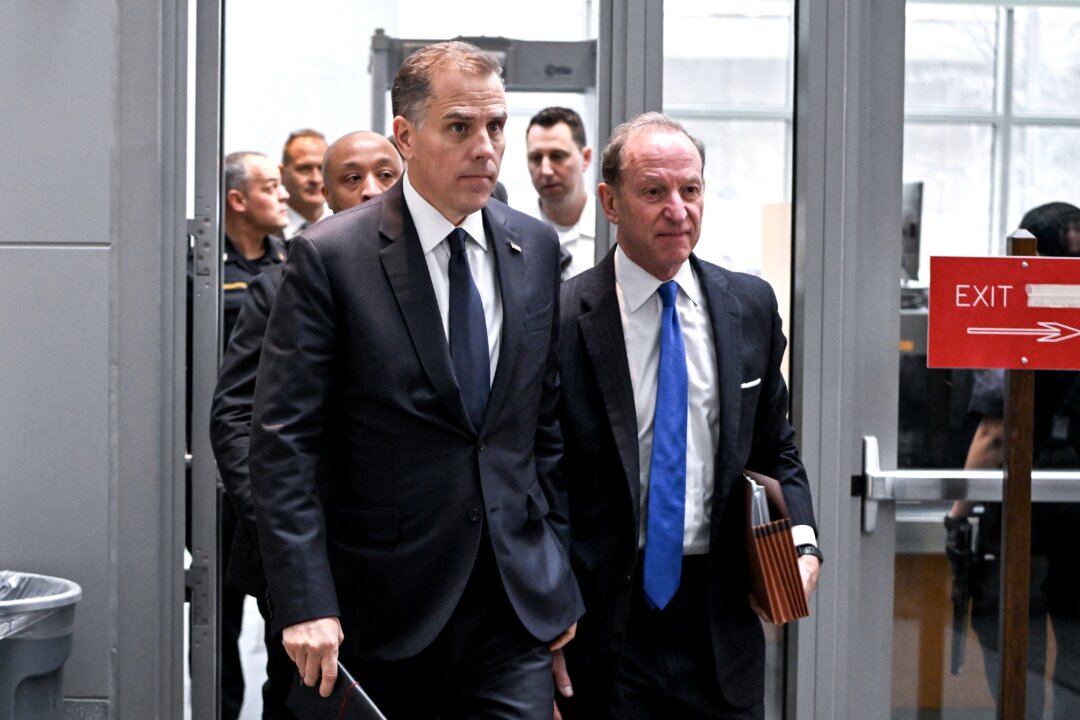Biden was originally slated to get off on a plea deal, but that fell apart after a judge rejected the deal last year.
Jury selection is set to begin this week in first son Hunter Biden’s federal gun crime case.
The first round of the jury selection process will begin on June 3 at the J. Caleb Boggs Federal Courthouse in Wilmington, Delaware.
Mr. Biden has been at the center of a series of controversies since the campaign era of the 2020 election cycle for a series of alleged personal, business, and legal failures.
Now, the first son is about to face the prospect of a trial that’s sure to be highly publicized and runs the risk of years in a federal penitentiary.
The trial will focus on allegedly untruthful statements that Mr. Biden made on a form to receive a firearm in 2018.
The start of the trial represents a fresh challenge for embattled President Joe Biden, who just days ago wrote on X, formerly known as Twitter, that “nobody is above the law” after his 2024 rival, former President Donald Trump, was convicted on 34 felony counts of falsifying business records in New York.
Here’s what you should know as jury selection begins in the trial:
The Charges
Mr. Biden is facing charges related to a three-count indictment brought by special counsel David Weiss, who’s leading the case for the government.
The first two charges relate to the allegedly untruthful statements Mr. Biden made on a form to receive a firearm that he wasn’t legally allowed to possess.
When buying a firearm, people have to fill out a form through the Bureau of Alcohol, Tobacco, Firearms, and Explosives certifying several things before they’re allowed to receive the weapon.

For instance, the form asks whether the buyer has been convicted of a felony, whether they’ve been dishonorably discharged, if they’re a fugitive, and—crucially to Mr. Biden’s case—whether the prospective buyer is “addicted to, or an unlawful user of” marijuana or any other federally scheduled drug.
According to the first two charges in Mr. Biden’s indictment, he checked “no” in response to this last question despite his later admission to using crack cocaine at the time.
This alleged untruthfulness constitutes a federal felony.
The third count in the indictment is related to the actual possession of the firearm, as federal law also prohibits those abusing drugs from possessing a gun.
Mr. Biden reportedly possessed the gun for a total of 11 days, at which point his girlfriend, who was reportedly worried about his mental health, disposed of it.
Dramatis Personae
The trial itself will feature a full cast of characters on both sides of the issue.
At the center of the trial is Mr. Biden himself.
The trial will be overseen by Trump-appointed federal Judge Maryellen Noreika, whose rejection of a proposed plea agreement last year brought about the trial.
Judge Noreika has rebuffed efforts by Mr. Biden to toss out the case, but she has also given wins to both sides on key evidentiary questions in the case.
Leading the case for the government is Mr. Weiss, a Trump appointee who has himself faced a litany of criticisms from the right for allegedly being too lenient on Mr. Biden.

Federal prosecutors in the case have said that they plan to call in about a dozen witnesses; most notably, they’ll have three of Mr. Biden’s former romantic partners testify.
The most high-profile of these is Hallie Biden, the wife of Mr. Biden’s deceased brother Beau who engaged in a relationship with Mr. Biden following her husband’s death in 2015.
Recently, a visit to Ms. Biden by President Biden caused a short-lived media frenzy, with many critics raising concerns about possible witness tampering or intimidation.
The case will also feature testimony from Kathleen Buhle, Mr. Biden’s ex-wife, and Lunden Roberts, the mother of one of his children.
About 250 Delawareans have been summoned to be prospective jurors in the case, according to Judge Noreika.
As the trial gets underway, that number will be whittled down to 12 jurors and some alternates.
Given the political nature of the case, a key question for these jurors will likely be based on where they get their news. The same question was key during the jury selection in President Trump’s New York trial.
Attorneys will need to find jurors capable of being objective in the case, whatever their feelings toward President Biden and the first family.
While Delaware isn’t nearly as much of a dark-blue stronghold as Manhattan is, the state still leans heavily toward Democrats—a fact that could make it difficult to put together a jury willing to convict a Democrat president’s son in an election year.
The Stakes
The case has high stakes for everyone involved.
For Mr. Biden himself, it means the difference between freedom and confinement: If convicted, Mr. Biden faces as much as 25 years in a federal penitentiary.
That said, Mr. Biden would be a first-time offender who’s unlikely to face nearly that much time.
Still, if he’s convicted of all three charges there’s a good chance he could spend months or years behind bars.
The case could also have broad political ramifications at a time when the campaign stump and the courtroom are more closely linked in politics than ever.
White House press secretary Karine Jean-Pierre has said that President Biden wouldn’t pardon his son if he was found guilty.

But should President Biden lose his reelection bid in November, he could find himself facing a great deal of pressure from his family to pardon his son before leaving the White House.
A conviction could have a limited impact on President Biden’s campaign.
Polls show that most voters don’t blame the alleged sins of the son on the father, but some do: That could be deadly in a race that could be decided by a tilt margin in some battleground states.
For Republicans, the case could take some of the media attention off of President Trump and put it back on President Biden.
Should Mr. Biden be acquitted, Republicans could use the acquittal to continue their claims that the judicial system has been fundamentally broken and politicized by actors within the Department of Justice.
President Biden, for his part, has largely stood off from the case, simply telling the press that he’s “proud of his son” and being largely supportive in his few public statements on the matter.
A Collapsed Plea Deal
Mr. Biden is about to face a jury of his peers—but originally, it wasn’t supposed to play out like this at all.
Last year, Mr. Biden appeared in the same courthouse where he’ll be tried.
Escorted by Secret Service agents and his high-powered legal team, Mr. Biden’s first court appearance on the matter came in July 2023.
At the time, Mr. Biden was hoping that Judge Noreika would rubber-stamp a deal that critics said gave most of its advantages to the defendant.
During his July appearance, Mr. Biden was brought to the court on several misdemeanor charges related to his alleged willful failure to pay income tax and three felony charges related to his possession of a firearm while being an unlawful user of a controlled substance.
But under a proposed pretrial diversion agreement, Mr. Biden likely wouldn’t have seen any jail time.
Under the preliminary agreement between Mr. Biden’s attorneys and Mr. Weiss—who wasn’t a special counsel at the time—Mr. Biden agreed to plead guilty to the tax charges in exchange for immunity from other potential tax, gun, and drug crimes that may have been committed during the period from 2014 to 2019. Prosecutors recommended probation as part of the deal.
The deal shocked critics, who condemned it as a “sweetheart deal” that came about because of collusion between the government and Mr. Biden’s team.
Ultimately, Judge Noreika sided with the critics and, saying the terms of the deal were far too broad, particularly in its provisions granting blanket immunity for a litany of crimes, struck the plea agreement down.
Immediately following this decision, Attorney General Merrick Garland finally promoted Mr. Weiss, who was in charge of the case, to special counsel, giving him far more control over which charges were brought in the case.
However, critics have also been skeptical of Mr. Weiss for allowing the lenient deal in the first place, with many saying at the time that a different prosecutor should have been elevated to special counsel.
In any event, Judge Noreika’s decision to reject the agreement was ultimately responsible for the case, which was never expected to see trial, to come before a jury.

